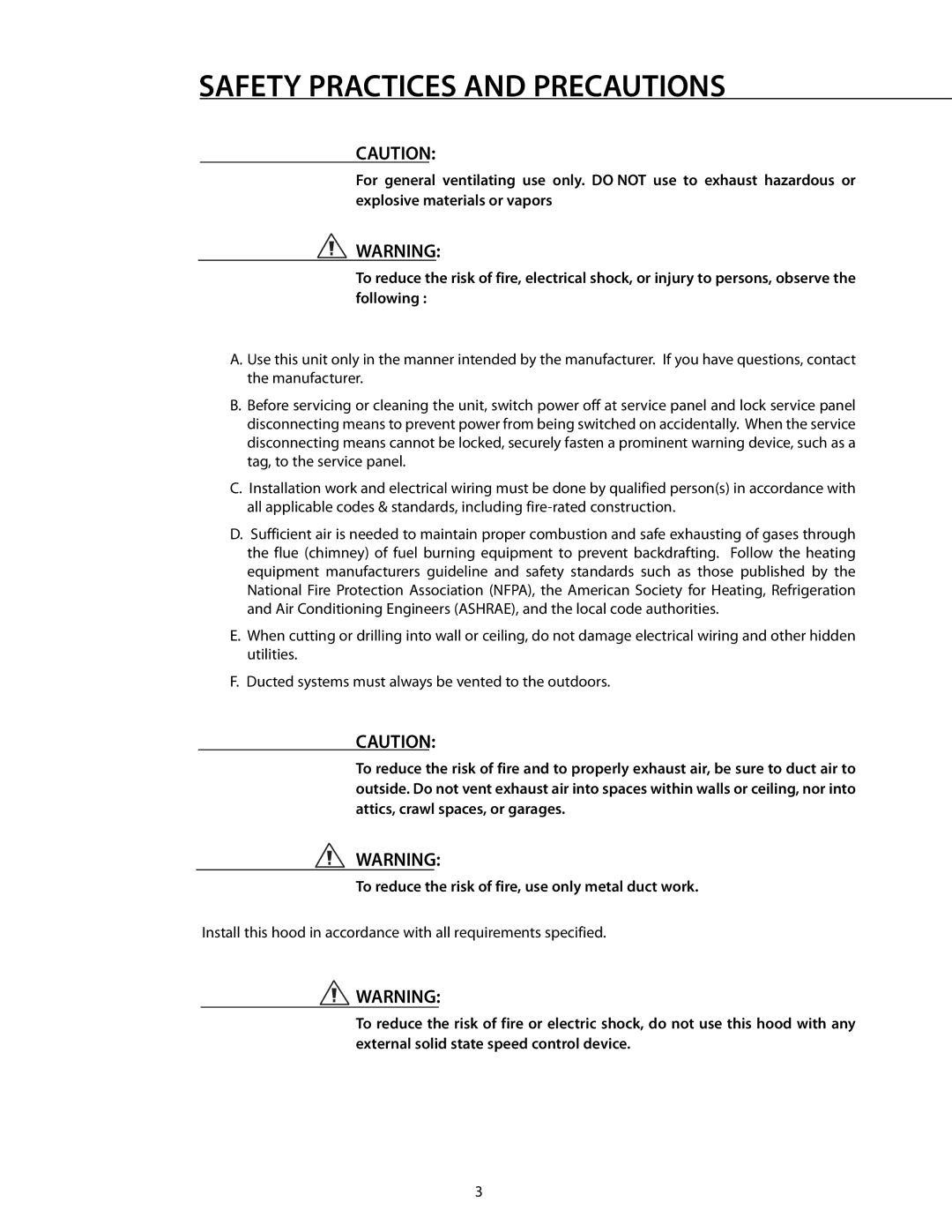
SAFETY PRACTICES AND PRECAUTIONS
CAUTION:
For general ventilating use only. DO NOT use to exhaust hazardous or explosive materials or vapors
![]() WARNING:
WARNING:
To reduce the risk of fire, electrical shock, or injury to persons, observe the following :
A. Use this unit only in the manner intended by the manufacturer. If you have questions, contact the manufacturer.
B.Before servicing or cleaning the unit, switch power off at service panel and lock service panel disconnecting means to prevent power from being switched on accidentally. When the service disconnecting means cannot be locked, securely fasten a prominent warning device, such as a tag, to the service panel.
C.Installation work and electrical wiring must be done by qualified person(s) in accordance with all applicable codes & standards, including
D.Sufficient air is needed to maintain proper combustion and safe exhausting of gases through the flue (chimney) of fuel burning equipment to prevent backdrafting. Follow the heating equipment manufacturers guideline and safety standards such as those published by the National Fire Protection Association (NFPA), the American Society for Heating, Refrigeration and Air Conditioning Engineers (ASHRAE), and the local code authorities.
E.When cutting or drilling into wall or ceiling, do not damage electrical wiring and other hidden utilities.
F.Ducted systems must always be vented to the outdoors.
CAUTION:
To reduce the risk of fire and to properly exhaust air, be sure to duct air to outside. Do not vent exhaust air into spaces within walls or ceiling, nor into attics, crawl spaces, or garages.
![]() WARNING:
WARNING:
To reduce the risk of fire, use only metal duct work.
Install this hood in accordance with all requirements specified.
![]() WARNING:
WARNING:
To reduce the risk of fire or electric shock, do not use this hood with any external solid state speed control device.
3
